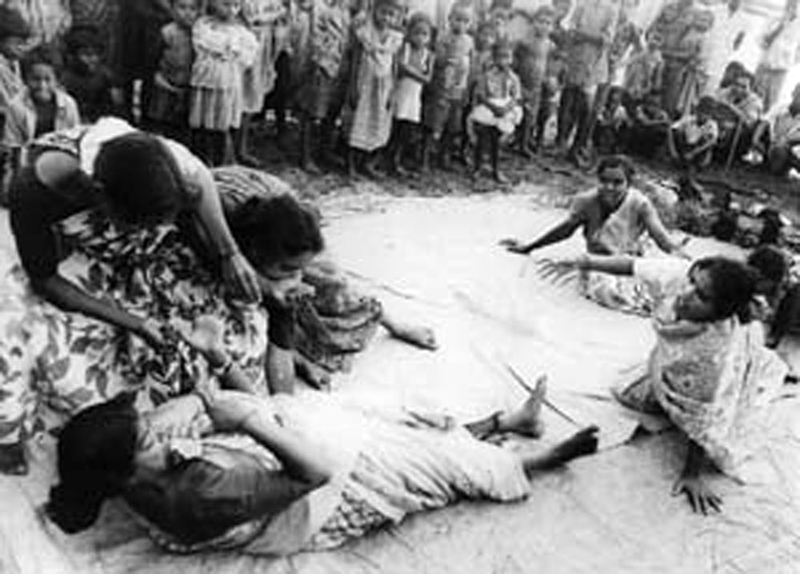Jana Sanghati Kendra


Grant Period: Over one year
Jana Sanghati Kendra (JSK) is an organisation that supports and promotes social organisations doing welfare and developmental work in rural West Bengal.
The question of whether art can, or should, play an ameliorative role, gains particular piquancy in the context of activist theatre. Here, questions about the relevance of art and its effectiveness as a medium of social change are brought to the fore. Between the view of art as being spontaneous human expression, and the injunction that artists ought to take on a social responsibility, there are a gamut of questions that face persons involved in activist theatre.
JSK worked on a collaborative project that addressed some of these questions, in order to better its understanding and strengthen its use of theatre directed towards social action. Collaborating with it were two other mass organisations – Paschim Banga Khet Majdoor Samity and Sramajibee Mahila Samity - as well as three women activists who, though members of both these organisations, made individual contributions to the project because of their long experience in using theatre for social action.
What JSK and its associates began by asking themselves, however, was the more basic question of whether the aesthetic quality of a performance need necessarily be compromised if theatre is situated in this kind of an osmotic relationship with social issues. The first was the cyclical relationship envisaged between theatre and social action. Another was the notion of spontaneity which implied: not dealing with social problems in general, but identifying problems peculiar to certain villages and addressing them primarily through theatre, not only by working on how solutions to them can be found, but also on how such solutions can be implemented.
JSK and the organizations with which it collaborated on this project, all have a history of using theatre as an integral part of their efforts to improve conditions of life in hundreds of villages spread over several districts of West Bengal. Outside resource people, interested in theatre in all its manifestations, were invited to these workshops. The documentation to emerge from the project includes a film on ‘spontaneous’ or ‘shatosphurto’ theatre, which is a fairly detailed record of the group’s work.
